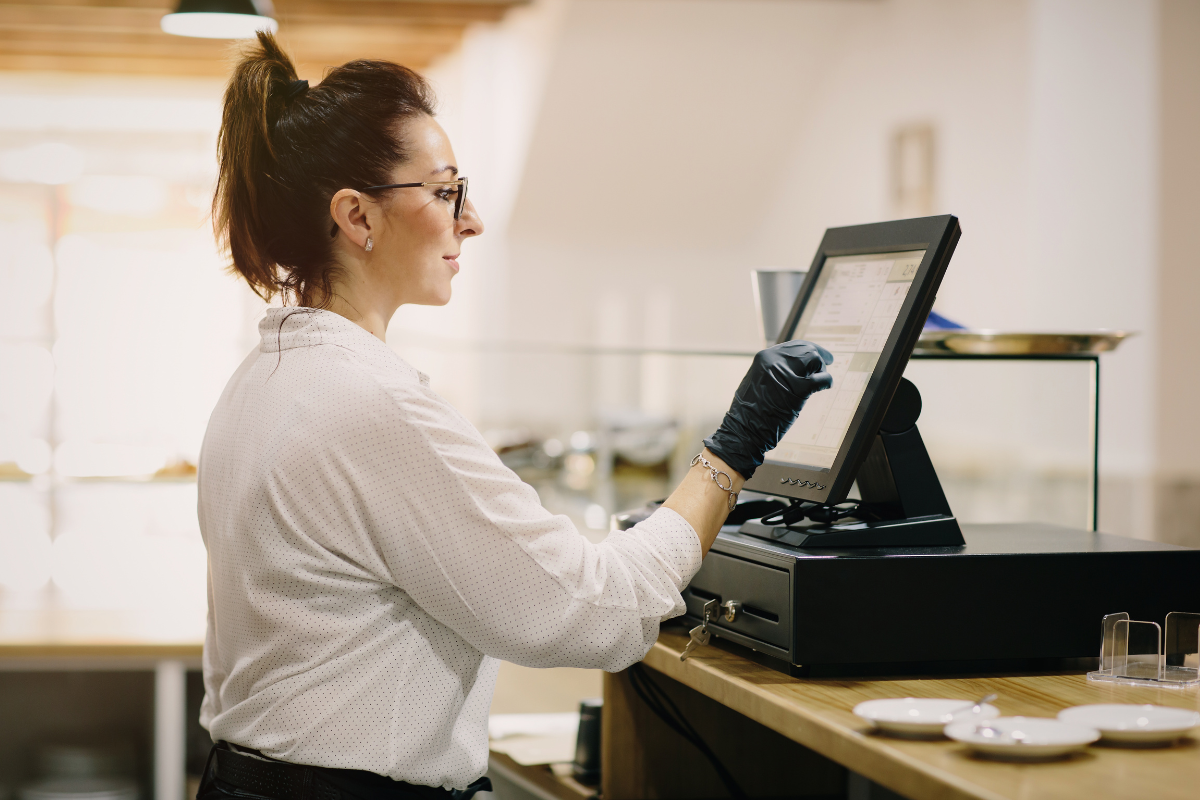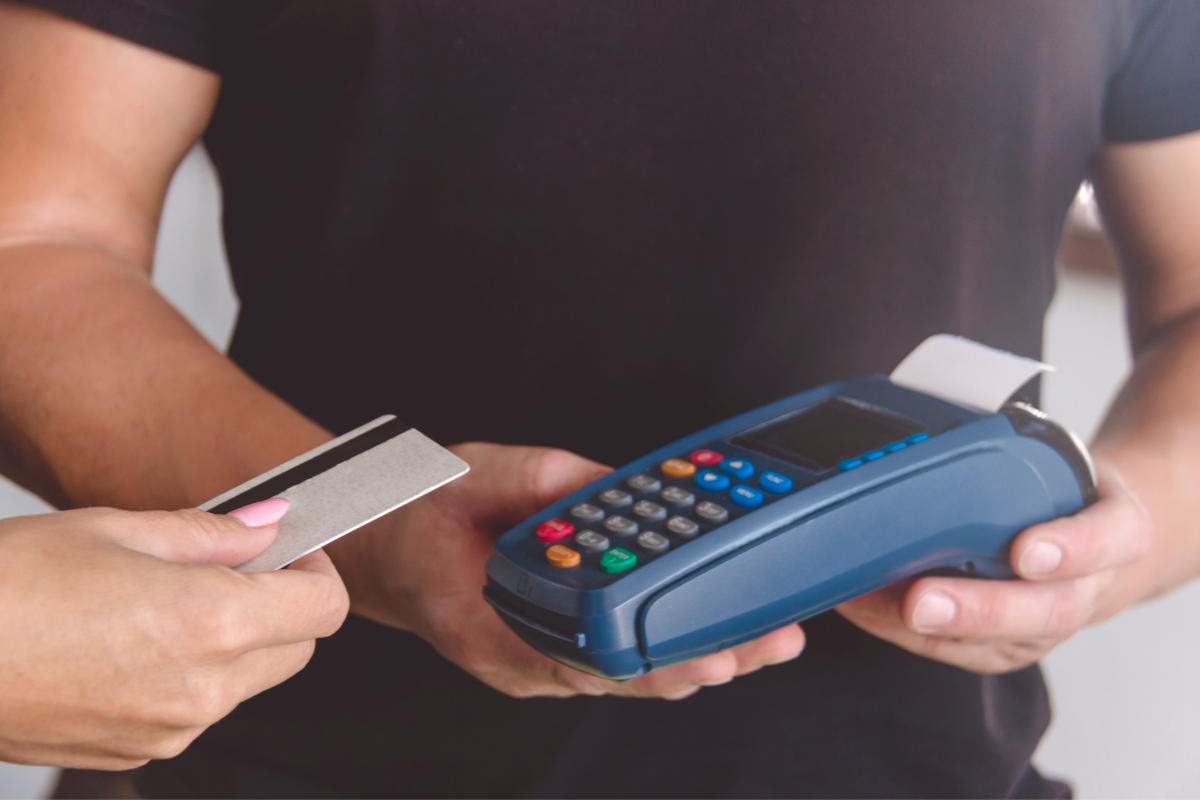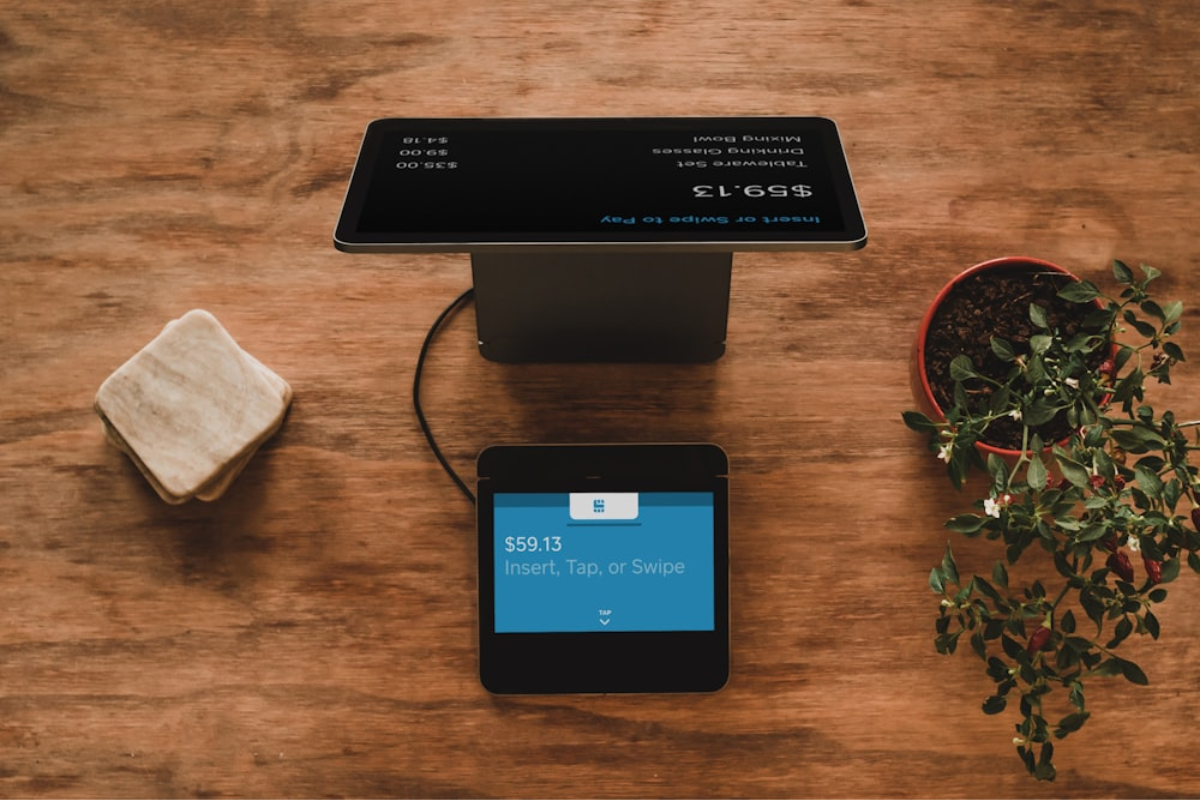There are over 33 million small businesses in the US, making up 99.9 percent of all US businesses.
Small business owners understand how competitive the industry is and need to adopt all tools at their disposal to get an edge over the competition.
One tool that can significantly boost success is a point of sale (POS) system.
A POS system is more than just a fancy cash register. It’s a smart software solution that streamlines business operations, from managing inventory to tracking sales and generating reports.
Discover how a POS system can impact small businesses in this post. We will discuss its benefits, the types available, and how to select the right one for your business.
Post Contents
Why Get A POS System For Your Small Business
Let’s discuss how a POS system can help a small business succeed:
1. Efficiency
Modern point-of-sale software can make your business more efficient.

For example, if you have a coffee shop, you might struggle to keep your head above water during the morning rush.
While your baristas take down orders manually, the customers may get impatient. Some might even walk out from frustration.
A POS system significantly improves the efficiency of order-taking by instantly processing orders.
This automation makes your business operation faster and leaves you with happier customers.
2. Cost Savings
Here’s how a POS system can help you save money:
- Reduced inventory loss: POS systems can help prevent overstocking by tracking your inventory in real-time. They can also automatically generate purchase orders to ensure your shelves are always perfectly stocked.
- Captures data: POS systems capture all your sales data, providing insights into customers’ spending habits and which products are the most popular. You can then make informed product orders and target your marketing strategies to high-demand items.
Let’s look at a real-world example of how a POS system can reduce costs.
An ice cream parlor in Miami stocks 10 different ice cream flavors. The owner decided to implement a new POS system, which allowed her to analyze sales data.
After a month of using the POS system, she discovered that the rum and raisin flavor consistently failed to sell.
Knowing this, she made less of this flavor, freeing up freezer space and saving on wasted ingredient costs.
3. Better Customer Experience
When it comes to customer satisfaction and experience, a POS system can be a real game-changer.
It can help you set up a loyalty program, allowing customers to earn loyalty points that they can redeem in your shop.
A POS system can also offer targeted promotions, helping you to market popular products. This strategy will not only increase customer satisfaction but also boost your sales.
Most importantly, a modern POS system will speed up the checkout process. Your customers won’t have to wait in long lines as you can quickly process cash or card transactions.
4. Inventory Management
We’ve touched on inventory management above in terms of efficiency, but let’s take a closer look.

A POS system tracks inventory, notifying you when your stock is running low. This feature helps you order products on time before your customers become frustrated.
If your small business has several locations, a POS system can help you track inventory at each branch.
Let’s take a bookstore as an example. When a popular author releases a new book, it tends to fly off the shelves.
A POS system can track how many books are left, allowing the bookstore owner to order more before the shelves are empty.
5. Improved Reporting
POS systems track sales and inventory data. It can also automatically generate detailed reports on trends, customer buying behavior, and employee performance.
These reports can help a small business owner make informed decisions on necessary changes in the company.
6. Secure Data
POS systems store encrypted data, preventing anyone outside the business from accessing private customer information and financial transactions.
Types Of POS Systems
There are a few different types of POS systems available for small businesses:
- Mobile POS: This system uses mobile phones to manage inventory and process payments. It’s useful for market vendors or at outdoor events.
- Tablet POS: Using an iPad or Android tablet, this affordable POS system works with other hardware like cash drawers or barcode readers. It’s useful for coffee shops, small restaurants, or mobile vendors.
- Terminal POS: This POS system combines software and hardware. It also sometimes makes use of cloud-based software, too. They include barcode scanners and cash drawers as part of the offering. Useful for full-service restaurants, grocery stores, electronic stores, or spas.
- Online POS: With this system, you use your own hardware and only purchase the software. Useful for small retailers or businesses with fewer big-ticket sales.
- Self-service kiosk POS: You’ve seen these at movie theaters and take-out restaurants, where patrons can purchase items or services directly from the self-service kiosk.

Choosing The Right POS System
It can be hard to choose from the several different types and brands of POS systems available. Here are some factors to consider when choosing a POS system for your small business.
- Budget: Determining how much you’re willing to spend on a new POS system. POS systems with more features and additional hardware will be more expensive.
- Business needs: Consider what your business needs. A smaller business with less stock will manage with a mobile POS system. Meanwhile, a larger shop or restaurant should invest in a more elaborate system with more functionality.
- Ease of use: You want a user-friendly POS system with an intuitive interface.
- Scalability: Suppose you’re just starting. If you want to grow your business and open more branches, you should look for a scalable POS system.
Wrapping Up
POS systems are highly beneficial for small businesses. They enhance efficiency and streamline operations. They can also help reduce unnecessary expenses by managing inventory and tracking sales.






























